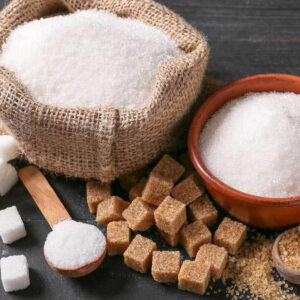Learning about beet sugar vs cane sugar can help individuals decide which matches their preferences better.
Learning about beet sugar vs cane sugar can help individuals decide which matches their preferences better.
Blog Article
Exploring the Distinctions in operation and Advantages Between Beet Sugar Vs Cane Sugar
In the culinary world, the choice between beet sugar and cane sugar is not just regarding sweetness but involves a nuanced consideration of flavor, application, and influence. While both sugars stem from various plants, each undergoes distinct manufacturing processes that discreetly influence their characteristics and viability for various meals.
Beginnings and Manufacturing Procedures of Beet and Cane Sugar

Walking cane sugar, on the other hand, comes from the sugarcane plant, an exotic lawn belonging to Southeast Asia and now cultivated in tropical zones worldwide. The production of cane sugar begins with the harvesting of cane stalks, which are squashed to release the juice. This juice is then boiled to focus it, after which it is spun in centrifuges to produce raw sugar crystals. These crystals are further refined to generate the white sugar commonly readily available in shops.

Nutritional Content and Wellness Considerations

When comparing the dietary web content of beet sugar and cane sugar, it comes to be evident that both kinds essentially supply the same calorie worths, with about 16 calories per tsp and no considerable nutrient variety. Both sugars, when eaten in excess, can contribute to elevated blood glucose levels, a danger factor for diabetes mellitus and other metabolic conditions. From a wellness perspective, regulating intake of any type of type of sugar, whether from beet or cane, is a good idea to avoid these prospective negative results on well-being.
Flavor Accounts and Culinary Applications
Despite their comparable chemical structures, beet sugar and cane sugar differ discreetly in flavor, which can affect their use in numerous culinary contexts. Cane sugar usually brings a hint of molasses, also in its polished form, offering a i thought about this warm, caramel-like touch that enhances baked items, coffee, and chocolate-based dishes. On the other hand, beet sugar is defined by its very refined, neutral preference, making it a versatile sugar that does not change the taste profiles of recipes.
Environmental Influence and Sustainability
While both beet and cane sugars are originated from plants, their environmental influences differ dramatically as a result of the unique methods of farming and processing needed for each. Sugar beet farming commonly involves comprehensive automation, which can increase nonrenewable fuel source consumption and carbon exhausts. Nevertheless, read this post here beets can be grown in cooler climates and call for much less watering, potentially decreasing water usage compared to sugarcane. Sugarcane, on the other hand, is usually expanded in tropical regions where it counts heavily on watering and a much longer growing period, boosting its water impact.
In addition, the processing of sugarcane commonly generates a considerable quantity of waste, including bagasse, which, although useful as biofuel, regularly contributes to air pollution if burned inefficiently. Sugar beet handling uses even more of the raw products, causing much less waste. Both sectors encounter difficulties in minimizing their environmental footprints, however recurring developments in farming methods and waste management are aiming to improve sustainability.
Economic Variables Affecting the Sugar Sector
The economic characteristics of the site sugar sector are considerably influenced by global market demands and profession policies. In regions where sugarcane or sugar beet production is subsidized, producers might have a financial benefit that allows them to provide reduced rates on the worldwide market.
Furthermore, variations in global demand for sugar, affected by dietary fads and industrial use in food, straight influence prices and production levels. beet sugar vs cane sugar. Climate condition additionally play a pivotal duty, as they can substantially affect plant yields and, consequently, the supply chain. This irregularity introduces a degree of financial uncertainty that can cause financial investment volatility in sugar manufacturing industries, affecting choices from growing to market approach
Conclusion
In final thought, both beet and cane sugar have special high qualities that suit various cooking needs. While cane sugar imparts an abundant flavor suitable for boosting baked items, beet sugar's nonpartisanship is excellent for lighter dishes.
Report this page